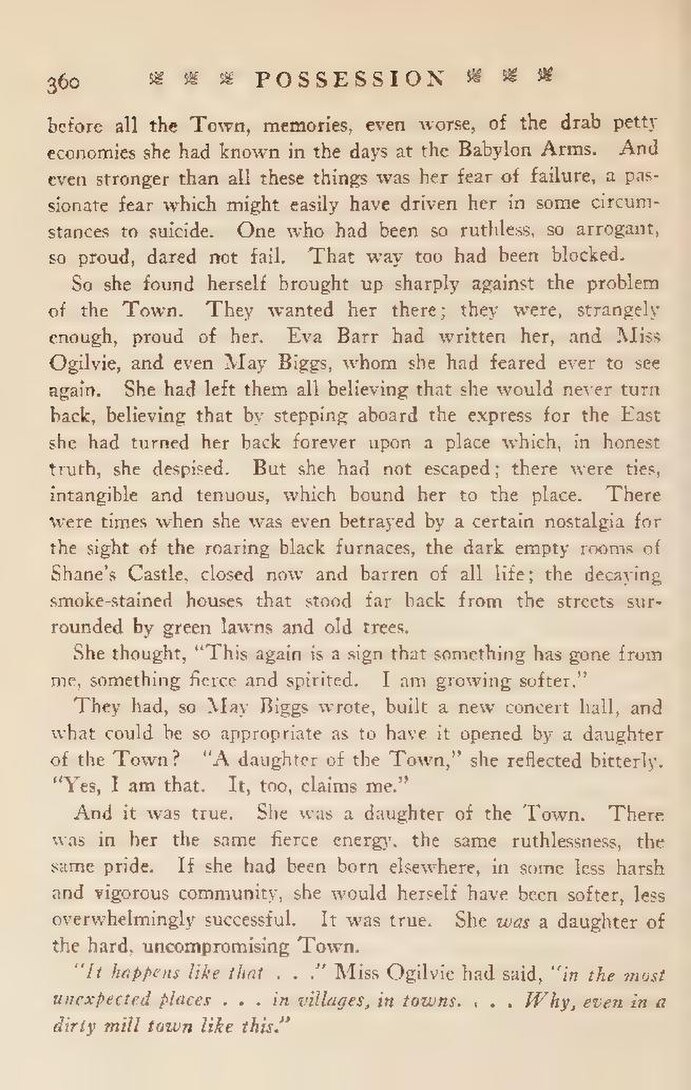before all the Town, memories, even worse, of the drab petty economies she had known in the days at the Babylon Arms. And even stronger than all these things was her fear of failure, a passionate fear which might easily have driven her in some circumstances to suicide. One who had been so ruthless, so arrogant, so proud, dared not fail. That way too had been blocked.
So she found herself brought up sharply against the problem of the Town. They wanted her there; they were, strangely enough, proud of her. Eva Barr had written her, and Miss Ogilvie, and even May Biggs, whom she had feared ever to see again. She had left them all believing that she would never turn back, believing that by stepping aboard the express for the East she had turned her back forever upon a place which, in honest truth, she despised. But she had not escaped; there were ties, intangible and tenuous, which bound her to the place. There were times when she was even betrayed by a certain nostalgia for the sight of the roaring black furnaces, the dark empty rooms of Shane's Castle, closed now and barren of all life; the decaying smoke-stained houses that stood far back from the streets surrounded by green lawns and old trees.
She thought, "This again is a sign that something has gone from me, something fierce and spirited. I am growing softer."
They had, so May Biggs wrote, built a new concert hall, and what could be so appropriate as to have it opened by a daughter of the Town? "A daughter of the Town," she reflected bitterly. "Yes, I am that. It, too, claims me."
And it was true. She was a daughter of the Town. There was in her the same fierce energy, the same ruthlessness, the same pride. If she had been born elsewhere, in some less harsh and vigorous community, she would herself have been softer, less overwhelmingly successful. It was true. She was a daughter of the hard, uncompromising Town.
"It happens like that . . ." Miss Ogilvie had said, "in the most unexpected places . . . in villages, in towns. . . . Why, even in a dirty mill town like this."
